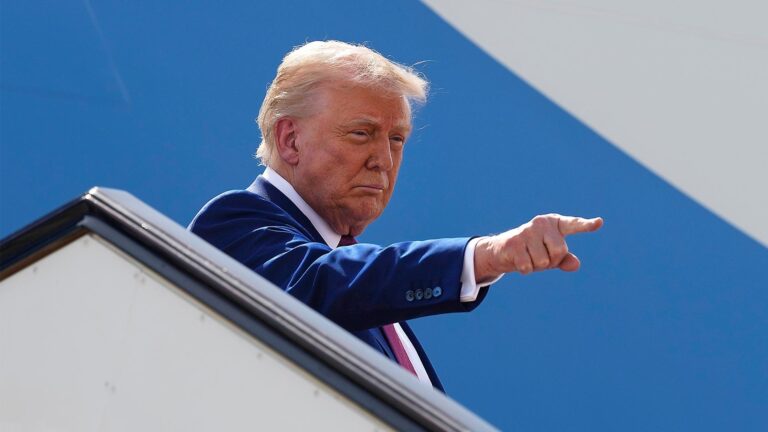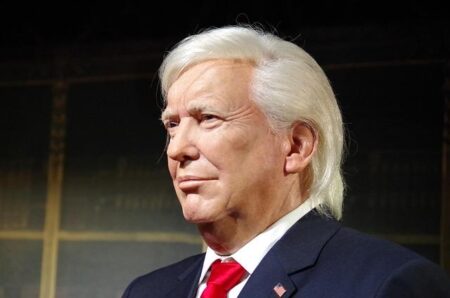Trump’s Remarks on France’s WWII celebrations: A Reflection of National Rivalries
In a recent social media post,former President Donald Trump stirred controversy by ridiculing France’s elaborate commemorations of World War II. His sarcastic comments have been interpreted by many as an expression of envy towards the European nation’s ability to celebrate its historical victories wiht such grandeur. As France gears up for significant anniversaries related to the war, Trump’s remarks have sparked conversations about his ongoing preoccupation with international relations and his fraught relationship with a country that has significantly influenced modern history. This analysis explores the implications of Trump’s jabs and their relevance in today’s geopolitical landscape, where historical narratives continue to shape national identities and diplomatic relationships.
Trump’s Criticism: A Window into Persistent National Rivalries
Donald Trump’s recent critique regarding France’s World War II commemorative events has reignited discussions about enduring national rivalries that linger long after the conflict ended over seventy years ago. His comments not only showcase his typical bravado but also hint at an underlying jealousy concerning how France honors its past.By suggesting that French celebrations are more grandiose, he contrasts this narrative with the often contentious portrayal of American involvement in the war. This rivalry, while historically rooted, seems to resurface in contemporary political discourse, overshadowing any collective recognition of sacrifices made during this pivotal time.
The contrasting methods of commemoration between these two nations highlight cultural and political divides stemming from differing historical pride. While America tends to celebrate military achievements through parades and fireworks displays, France favors more somber observances that reflect on civilian sacrifices during wartime. This cultural divergence can be broken down into several key aspects:
- Historical Perspective: Each country shapes its own interpretation of history based on triumphs and tragedies.
- Cultural Sentiment: The emotional tone surrounding commemorative events plays a crucial role in shaping national identity.
- Political Implications: Commemorative practices often align with current political agendas or nationalist sentiments.
| Event | Nation | Main Focus |
|---|---|---|
| D-Day Observance | France | Sacrifice and Unity |
| Memorial Day | USA | Civic Pride in Military Successes |
Understanding Trump’s Insecurities Amid Global historical Celebrations
The global community frequently comes together to honor significant milestones like World War II; though, Trump’s reactions frequently enough reveal deeper feelings of inadequacy regarding America’s place within these narratives. The splendor associated with celebrations such as Bastille day or events honoring allied forces serves as a reminder of America’s tumultuous past alongside its legacy from World War II. His tendency to mock these occasions may stem from difficulty accepting a narrative where america is not always at center stage; thus portraying his critiques as expressions rooted in jealousy over countries commanding respect through their historical observances.
This behavior highlights an ongoing rivalry not just concerning military accolades but also regarding cultural significance on an international scale. within this framework lies a complex web woven from insecurities tied closely to both national pride and personal validation for Trump himself. His frequent disparagements toward French commemorative practices suggest fears surrounding how American history is perceived globally—especially when juxtaposed against grander celebrations abroad which may cast shadows over his presidency’s perceived impact.
As he resorts to mockery for dominance assertion purposes it raises questions about underlying motivations linked directly back towards self-worth amidst celebrated resilience transcending borders.
Examining these dynamics reveals how intertwined personal ego can fuel disparaging remarks directed at other nations’ efforts toward remembrance.
Diplomatic Recommendations: Building Bridges Through Shared Historical Respect
Aiming for improved diplomatic relations necessitates prioritizing mutual respect for shared histories shaping each nation’s identity.
Recognizing significant historical moments like victories during World War II can lay groundwork conducive towards dialog fostering collaboration between countries involved.
Utilizing history effectively encompasses strategies including:
- Cultural Exchange Programs: Encouraging student exchanges focusing on shared histories enhances understanding across different perspectives.
- Cultural Collaboratives: Promoting joint cultural initiatives celebrating mutual sacrifices fosters unity among nations involved.
- Synchronized Commemorative Events: Organizing collaborative memorials honoring contributions reinforces bonds between participating countries involved throughout shared experiences faced together historically!
Additionally employing diplomacy respecting contextual backgrounds better addresses contemporary issues arising today! Constructive dialogues should create spaces recognizing past grievances without allowing them overshadow future cooperation opportunities available moving forward! Key principles guiding effective diplomacy could include:
| Principle | Description | |
|---|---|---|
| Historical Context | Understanding events from both perspectives fosters empathy! | |
| Respectful engagement | <i style=’font-size:0px;’>Approaching discussions respectfully helps de-escalate tensions!</i> | |
|
The Way Forward |
||
|---|---|---|
|
Donald Trump’s recent statements regarding France’s WWII celebrations reveal intricate dynamics involving both national pride alongside personal rivalries present within him personally! As he targets this European nation specifically it becomes evident those remarks extend beyond mere jest—thay stem instead from deeper sentiments encompassing envy coupled tightly around notions surrounding american exceptionalism itself! Responses emerging across public spheres—including historians—highlight ongoing cultural tensions defining U.S.-European relations currently unfolding before us all today! As Trump continues engaging within contentious dialogues here responses originating overseas will likely influence future conversations revolving around themes related directly back towards memory preservation along side international camaraderie established previously throughout our shared histories experienced collectively together. This evolving narrative prompts essential inquiries concerning how various nations choose commemorate their respective pasts while together examining leadership roles played framing such discussions amid increasingly polarized environments we find ourselves navigating through presently! |




